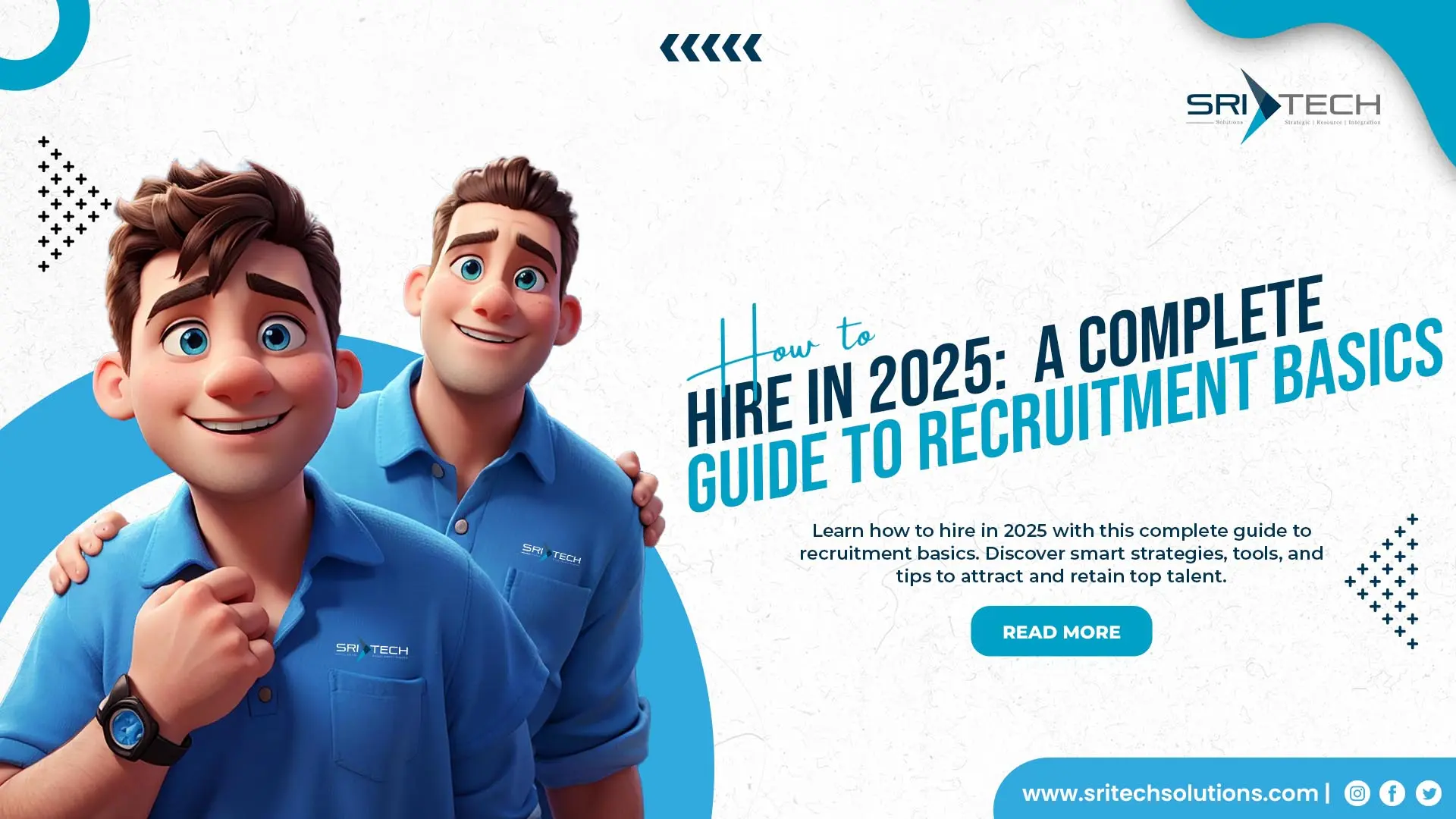Introduction
Recruiting the right talent is one of the most critical responsibilities of any growing organization. With changing workforce dynamics and advancing technology, understanding the basics of recruitment is essential in 2024.
This guide breaks down the types of recruitment, recruitment funnel stages, key recruitment tools, skills to develop, and tips to create a recruitment plan—so you can streamline hiring and secure top talent.
Types of Recruitment in 2024
-
Internal Recruitment
Promote or transfer existing employees to fill roles, boosting retention and motivation. -
External Recruitment
Source talent outside the organization to bring in fresh skills and perspectives. -
Diversity Recruitment
Prioritize inclusion by hiring from varied backgrounds through unbiased processes. -
Online Recruitment
Use digital platforms to post jobs, filter candidates, and speed up hiring. -
Executive Recruitment
Identify and hire senior-level professionals for leadership roles. -
Passive Recruitment
Target professionals who aren’t actively job-hunting but are open to better opportunities. -
Soft Skill-Based Recruitment
Focus on traits like communication, empathy, and team management alongside technical skills.
The Recruitment Funnel: 9 Essential Stages
-
Identify the job vacancy
-
Create a job description
-
Gather candidates
-
Screen potential candidates
-
Interview possibilities
-
Assign any necessary tests
-
Perform background checks and references
-
Deliver the job offer and negotiate
-
Complete onboarding
Each stage is designed to filter and refine applicants while ensuring the best candidate experience.
Top Recruitment Tools in 2024
-
Job Portals: Platforms like Glassdoor and Indeed are still key for job visibility.
-
Talent Management Software: Automate and track candidate progress.
-
Screening Tools: Use AI-powered platforms like Harver and Xobin to find the right fit.
-
Communication Tools: Platforms like Zoom, Google Meet, and Microsoft Teams help streamline interviews.
-
LinkedIn: The #1 network for sourcing passive candidates and sharing job opportunities.
Recruitment Skills to Develop
To be a great recruiter in 2024, develop these skills:
-
Listening and communication
-
Tech-savviness
-
Cultural awareness
-
Organizational and multitasking ability
-
Networking and sales skills
-
Negotiation and data-driven decision-making
Tips for Creating a Strong Recruitment Plan
-
Determine the Role
Define hours, team dynamics, and job type. -
Define the Ideal Candidate
Use role-based profiles for targeted sourcing. -
Clarify Responsibilities
Clearly outline expectations in your job post. -
Develop a Hiring Schedule
Set internal deadlines to prevent delays. -
Create a Hiring Budget
Include salary, tools, assessments, and advertisement costs. -
Ensure Objective Hiring
Standardize interview questions and scoring systems. -
Formalize Onboarding
Use structured onboarding documents to help new hires succeed.
Final Thoughts
Recruitment in 2025 is more than just filling vacancies — it’s about finding and nurturing talent that aligns with your company’s goals and culture. By understanding the recruitment funnel, using the right tools, and honing your recruiter skills, you can make better hiring decisions and boost employee retention.
🤔 Frequently Asked Questions (FAQ)
1. What are the most common types of recruitment in 2024?
The most common types include internal, external, online, executive, and diversity recruitment. Companies are also increasingly focusing on soft skills and passive candidates who aren’t actively job hunting.
2. What is the recruitment funnel?
The recruitment funnel refers to the step-by-step process of hiring, from identifying job vacancies to onboarding. It includes 9 stages: job identification, description, candidate sourcing, screening, interviewing, testing, background checks, offer negotiation, and onboarding.
3. Which tools help streamline the recruitment process?
Popular tools include job portals like Indeed, talent management systems like Workable, screening tools like Xobin, and communication tools like Zoom or Microsoft Teams. LinkedIn is also essential for networking and sourcing talent.
4. What skills should a recruiter develop in 2024?
A successful recruiter should have excellent communication, listening, negotiation, and networking skills. Familiarity with recruitment software and being data-driven are also crucial in today’s digital hiring landscape.
5. How do I create a recruitment plan for my company?
Start by defining the role, clarifying responsibilities, identifying the ideal candidate, and setting a hiring timeline and budget. Use objective hiring methods and prepare proper onboarding materials to finalize the plan.
6. Why is diversity hiring important?
Diversity hiring enhances company innovation, productivity, and performance. It also ensures an inclusive workplace culture by bringing in different perspectives and reducing hiring biases.
7. What is passive recruitment?
Passive recruitment targets skilled professionals who are not actively seeking new roles but may consider switching for the right opportunity. This approach is especially effective for finding niche or highly skilled talent.
